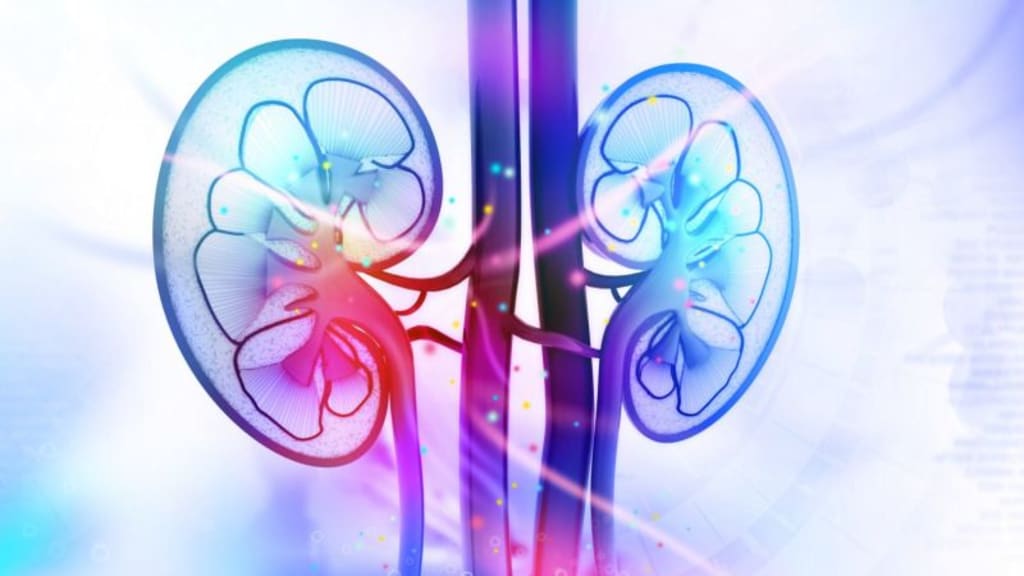Content warning
This story may contain sensitive material or discuss topics that some readers may find distressing. Reader discretion is advised. The views and opinions expressed in this story are those of the author and do not necessarily reflect the official policy or position of Vocal.
ALPORT SYNDROME
CAUSES, SYMPTOMS AND TREATMENT OPTIONS

Alport Syndrome is a rare genetic disorder affecting the kidneys, ears, and eyes. It results from gene mutations responsible for collagen production, leading to kidney damage, hearing loss, and eye abnormalities. Early diagnosis and management are crucial for addressing the progressive kidney issues associated with this condition.
The patient suffers this syndrome when the body stops producing normal type IV collagen proteins. Typically, your kidneys produce the normal type IV collagen proteins. Three types of individual collagen chains, also called alpha chains, twist together such as ropes. The three chains are alpha 3, 4, and 5. The most severe symptom of Alport syndrome is the one where one of the chains doesn’t get adequately produced, and as a result, the other two chains cannot combine.
Sometimes, when your body fails to produce any of the chains, other chains fail to combine, or even if they combine, they don’t work as they should. In the latter case, the symptoms might not be as severe as in the former case.
The kidney’s filtration membranes, glomerular basement membranes (GBM), need type IV collagen.
Types of collagenTypes of collagen
Types of Alport Syndrome
There are three genetic types of Alport Syndrome, which are discussed below —
XLAS or X-linked Alport Syndrome – This is the most common Alport syndrome as it covers 60 to 80% of the patients affected with Alport syndrome. In an X-linked disorder, the gene responsible for the disorder is located on the X chromosome. Males have only one X chromosome (XY), while females have two chromosomes (XX). If a male inherits the mutated gene on his single X chromosome, he lacks a second, healthy X Chromosome to compensate for the defect. It results in more severe symptoms. Conversely, females with two X chromosomes often have one healthy X chromosome that can partially compensate for the mutated gene, leading to milder symptoms.
ARAS or Autosomal Recessive Alport Syndrome – About 15% of the people who are affected with Alport syndrome have ARAS. Here, an individual has a mutated gene for their chromosome 2. It is because chromosome 2 has the alpha 3 and alpha 4 encoded.
ADAS or Autosomal Dominant Alport Syndrome – In our pairs of genes, the disease gets a “dominated” tag if one of the genes gets mutated. People with ADAS have one mutated gene in their chromosome 2, which contains the alpha 3 and alpha 4 collagen proteins.
Causes and Risk Factors of Alport Syndrome
The leading cause of Alport syndrome is the mutation of the collagen gene. The disease is not contagious, but it is an inherited condition where the patient gets it from either or both the paternal and the maternal side.
Symptoms of Alport Syndrome
There can be various symptoms depending upon the type one has inherited. However, some of the common and significant symptoms include –
Microscopic hematuria – blood in the urine that is not visible to the eyes
Proteinuria – protein in the urine
Issues with eyes
Kidney failure or some kind of chronic kidney illness
Hearing loss
Blood in the urine is the first symptom of Alport syndrome. It is also called microscopic hematuria, which occurs because of the abnormal GBM’s red blood cell secretion in the urine. Anyone with ARAS and men with XLAS will have microscopic hematuria from the moment they are born.
However, females with XLAS will develop this symptom over time. People who have ADAS won’t necessarily develop microscopic hematuria. One gets affected with CKD or chronic kidney disease after the gradual reclination of their kidney functions.
Treatment of Alport Syndrome
Alport syndrome has no definite cure, but some researchers are trying to find a way to treat the abnormal genes, but none have succeeded. Even if there are no cures for Alport syndrome, there are some treatments that one can undergo to slow down the decline of their kidney, or they can delay their kidney failure.
ACE or Angiotensin-converting enzyme inhibitors
ARBS or Angiotensin II receptor blockers
SGLT 2 or Sodium Glucose transported type 2 inhibitors
Sodium controlled diet
About the Creator
Enjoyed the story? Support the Creator.
Subscribe for free to receive all their stories in your feed. You could also pledge your support or give them a one-off tip, letting them know you appreciate their work.





Comments
There are no comments for this story
Be the first to respond and start the conversation.